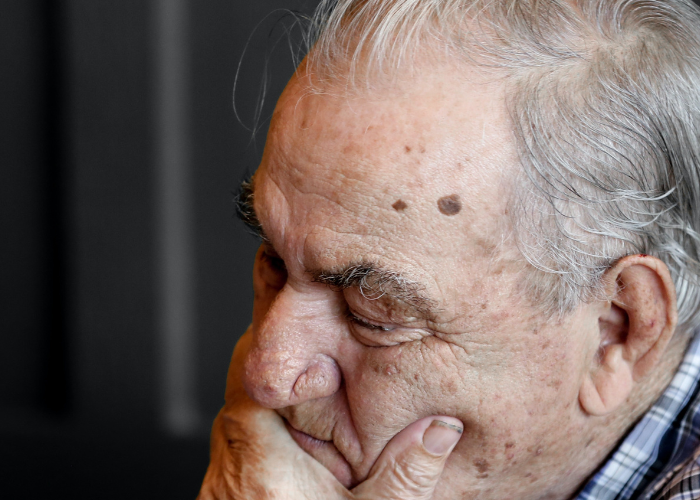220 จำนวนผู้เข้าชม |
16/01/2024

Mental health of the elderly Should not be overlooked
Mental health of Elderly
Oftenly, the caretaker finds a way to deal with the character of an elder that has changed from their usual. The caretaker has to understand that the elderly have to face many problems like stress, worry, change of hormones from deterioration of body. Some of them might have depression unconsciously. Caretakers must observe the characteristic that is a sign of an elder’s mental health.
Changes that affect to the mental health of elderly
1.Physically factor
Body of elderly is deteriorating as a result of symptoms like loss of memory, bad hearing, poor vision, and limitation of the body in moving so they cannot help themselves.
2.Emotion and mental
Elderly tend to have depression, irritability, paranoia, anxiety, anger and headstrongness. Caused by decay of brain cells and hormones in the body. Faced with losing something or an emotionally damaging event.
3.Socially
Social role of the elderly is lower, losing stability in life. Feel like they are just losing their importance in society and don’t get an interest like before. Causing in low-self esteem and low self honor. Feel that they are becoming a burden to their family and inconveniently travel to anywhere because of health issues.
4.Being a patient of chronic or incurable disease
Like diabetes, high blood pressure, cancer, brain disease causes mental issues in the elderly. Tired of long and hurting treatment with high cost, while the disease has not been completely cured. Thus, Elderly is not cooperate in treatment, worsening the disease and quality of life.
Mental health that frequently found in elderly
Unstable emotion
It is a sudden change of emotion. Elderly will have a series of emotions like being sad or happy or might be shuffled with crying without any clue or reason. This emotional change may be caused naturally or related to the disease, change in the body, unusual level of hormones, stress, critical change in life or even mental disease.
Stress and anxiety
Elderly is easily stressed or worried, because it is difficult to adapt to change. So they expressed it with worry and lack of self esteem.
Stress can be physically expressed like headache, diarrhea, constipation, low appetite, indigestion etc. And expressing with behavior like nagging, always complaining, having frequent conflict with others and social isolation.
Depression in elderly
It is one of emotional damage. When that happens, elderly will not be happy, depressed, get bored of their surroundings, or have a pessimistic view of life, and feel that they don’t have any values. Some people might be irritating, angry, headstrong, and feel hurt on themselves easily. These mental effects on the body like insomnia, weakness, not refreshing, low appetite, like to talk about sad things. Some patients who have severe symptoms might think of self-harming.
Elderly’s behavior that has to be carefully observe
1.Changed habits of living
Like unusual eating habits, might eat more or less than usual, low appetite, become skinny without health issues.
2.unusual sleeping habit
Might sleep more than usual, some people have insomnia,not full sleep, feel sleepy and not refreshed all day.
3.unusual character or behavior
Like irritable more often, depression, silence, stress, bristly, no talking, visible anxiety.
4.Physical sickness that can’t find the cause
Caretakers should observe this thoroughly because some diseases that have not been found, might be the hidden disease of some chronic disease like pain on many parts of the body, headache, pain in bone, dizziness, stomachache.
Ways of take caring the mental health of elderly
1. Honoring, respecting the decision and giving their importance to the elderly like asking about health and well-being, talking about funny things with them frequently so they feel like they have someone interested in them.
2. Doing the activities with elderly
It should be a fun activity to do, or something that they liked or interested in doing. Regularly doing that together to develop the relationship in the family. Boost the elderly to feel that they can still be an advisor to family members and not feel like aliens.
3. Don’t make the elderly feel they’re someone who is a burden
4.Always observe the unusual thing and keep asking for the causing elderly anxiety. Talking and listening to them and exchanging solutions together. Don’t have them carry the problem and depression alone.
5.Let elderly people meet people they like or are familiar with like their children, friends or neighbors.
6. Invite to pray, practice the dhamma, practice meditation, and change the atmosphere to make the elderly feel refreshed. Avoid events that cause trauma.
© 2024 Company, Inc